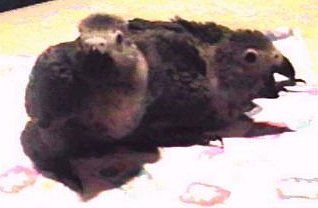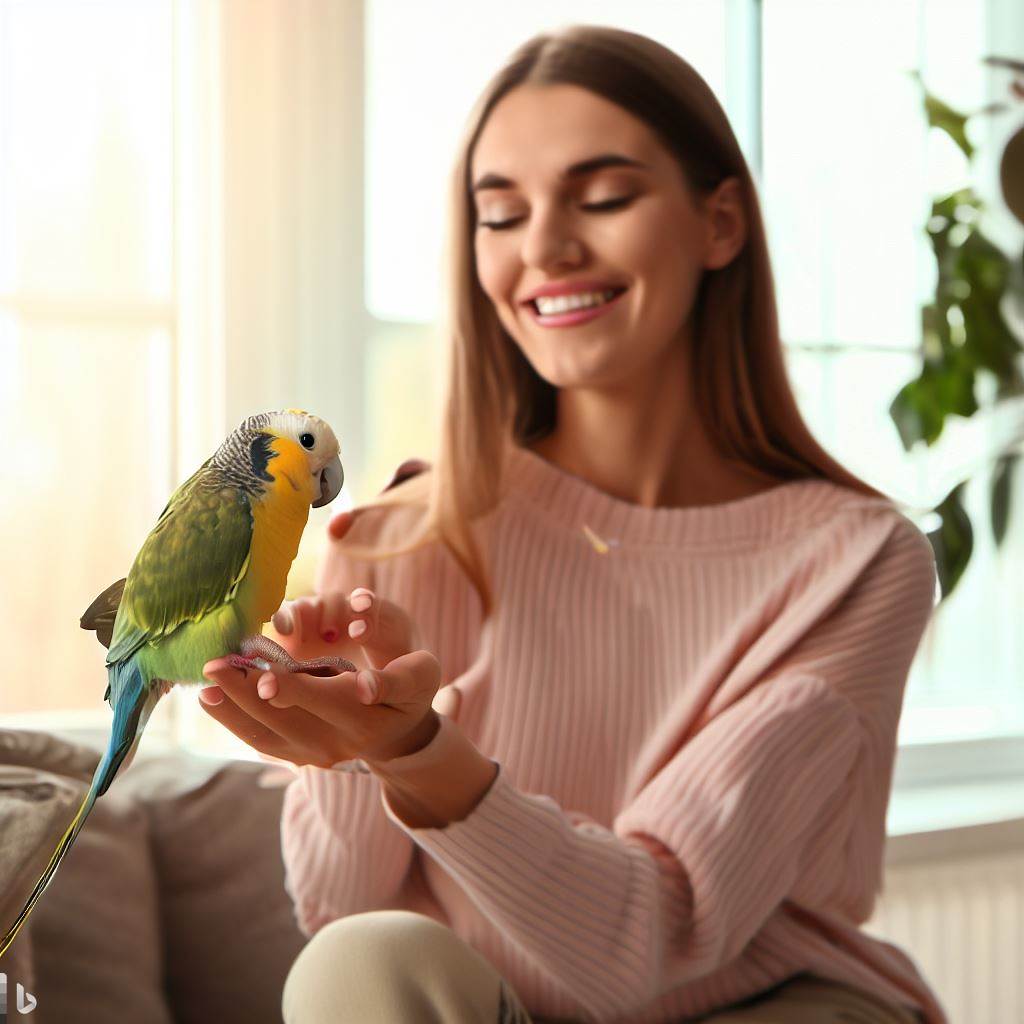
This article deals with the two top ideal ways of acquiring your new family member. These choices are through 1) Professional Breeder 2) Hobbyist 3) Commercial Pet Shop.
I feel sure that a breeder who sells over 30 more birds per year, can be considered a “professional.” Any less than 30, they are referred to as a hobbyist breeder. Fifteen years ago, the breeder simply bred birds, selling babies out of the nest, handing the baby over to a pre-determined handfeeder for weaning, increasing the initial purchase price of the bird. Presently, it is more common for the breeder to include handfeeding before releasing possession to the new owner. Let us consider the pros and cons of this new responsibility. A handfeeder can still be hired for their services, after checking out their environment and references. Only an experienced, reputable handfeeder should be considered, and ask for references! No respectful, reputable breeder or handfeeder will release a baby without it being FULLY weaned, regardless of how much time has elapsed.
Experienced handfeeders generally do not take on more than they can handle, one of the key desirable services a handfeeder offers is proper socialization, nurtured, with repeated interaction with the baby. Ideally, the baby is abundantly weaned, and raised with dedication, patience, and love.
The bird, usually stays with the breeder, who generally handfeeds and weans. The cost is absorbed in the purchase price of the baby. A keen, essential part of handrearing is developing a bond between bird and human. Busy breeders may not have the time to do justice to the developing baby. Not always certainly, but there are some out there, who basically “assembly-line” feed.
Get references and USE them! Reputation is mandatory for reliable services of bird breeding. Without a good rep, backed by references, a breeder will quickly start losing business, if only by word-of-mouth alone.
Now let’s consider a commercial pet shop. The point to keep in mind is a pet shop may not specialize in birds, including crucial after-sale support. Questions regarding behavior, nutrition, disease, or any other subject will arise for certain, and a good support team is crucial.
Pet stores are in business for one reason-PROFIT!!!! This being the major motivator, I caution you-BUYER BEWARE!!! Listed below are 10 questions you must ask in order to determine if the pet store will meet your’s, and your bird’s needs.
1) Check for proper licensing and permit requirements necessary for the location.
2) Visually inspect store for cleanliness and disease-free animals, any they may carry.
3) Are the babies handfed, or parent-raised?
4) Ask for a health guarantee, or well-check from an avian veterinarian.
5) Ongoing after-sale support for the life of the bird?
6) Are references made available?
8) How long in business; long-term business and services, or fly-by-nights?
9) Are they expert and experienced in aviculture?
10) Do they have only certain species, or have access to varied species and breeders?
These questions are vital in ANY acquisition situation, i.e breeder, pet shop, etc. The best option for your new baby is taking the time and effort to continue learning all you can, through a variety of sources. Issues such as feeding, health, characteristics, etc., can be learned by one-on-one sessions with other bird owners, published literature, books, magazines, and ezines. Joining your local bird club is a vast resource for learning. I implore all of you to keep nothing to yourselves, we learn nothing this way. Knowledge and experience must be shared!!
Having a pet bird companion will be one of the most enjoyable, fulfilling relationships you will experience in your lifetime. I wish you both well!

